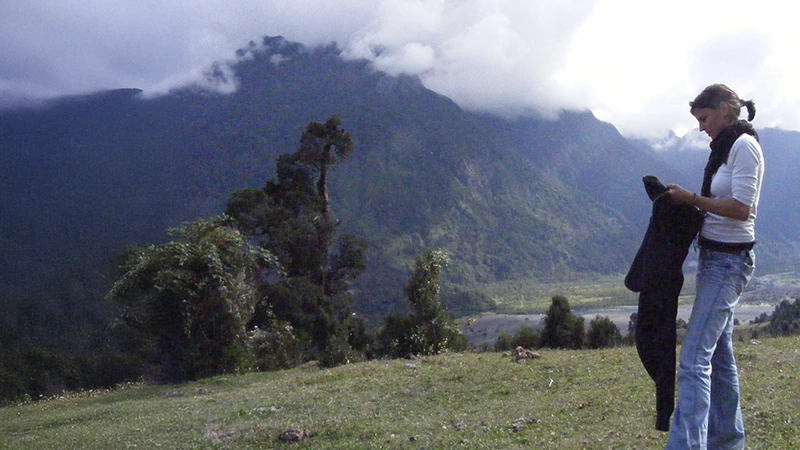If you are the owner of a self-built house or one without final approval, the Ley del Mono (Law No. 20.898) offers you a unique opportunity to regularize your property in a simplified manner. This law establishes special procedures for houses built without the corresponding permit or that have not received final approval, allowing owners to access benefits such as state subsidies, as long as they meet certain requirements.
In this article, we explain how the regularization process works and the requirements so you can take advantage of this opportunity before December 31, 2025.
What is the Ley del Mono and how does it benefit property owners?
Law No. 20.898, commonly known as the “Ley del Mono”, was designed to regularize self-built houses in Chile. Its main objective is to allow houses that do not have permits or final approval to be regularized, facilitating access to basic services and state subsidies. This regularization also aims to improve housing conditions, ensure structural safety, and allow properties to comply with urban planning regulations.
The deadline to regularize houses is until December 31, 2025, so if your property meets the requirements established by the law, you can regularize it within that period.
Title I of the Ley del Mono: Requirements and conditions
Article 1: Requirements for regularization
Article 1 of the law establishes the requirements that houses must meet to be regularized:
- Construction date: The house must have been built before the publication of the law.
- Location: It must not be in risk areas or on public utility or national property land.
- Fiscal appraisal: The house must not exceed 1,000 UF in fiscal appraisal.
- Habitable area: The area of the house must not exceed 90 m², although there are exceptions in the case of houses benefited by subsidies.
- Minimum standards: The property must comply with habitability, fire safety, and structural stability standards.
- No pending claims: There must be no pending urban planning claims before the municipal works department.
The law also establishes specific habitability standards, such as a minimum ceiling height (2 meters), adequate ventilation, and fire resistance, especially in attached houses.
Article 2: Regularization request
Article 2 regulates the procedure for requesting the regularization of the house. Owners must submit the following documents to the municipal works department:
- Simple declaration from the owner confirming the ownership of the property and the absence of claims.
- Technical specifications: Sketches, site plans, and scaled plans that depict the layout and measurements of the house, signed by an architect.
- Report from a competent professional (such as an architect) certifying that the house complies with habitability, safety, and stability standards, and that it is not located on prohibited land.
- Fiscal appraisal certificate granted by the Internal Revenue Service.
Once these documents are submitted, the municipal works department will review the request and, if everything is in order, will grant the regularization certificate within 90 business days.
Article 3: Regularization of houses larger than 90 m²
Article 3 extends the regularization procedure to houses up to 140 m² in area and a fiscal appraisal of up to 2,000 UF. These houses can also be regularized if they meet the following requirements:
- Be located in urban or rural areas (except in subdivisions approved by Decree Law No. 3.516 of 1980).
- Comply with habitability, safety, and stability standards.
- Ensure the installation of basic services such as electricity, drinking water, sewage, and gas.
- As in Article 2, owners must submit a series of documents and, in some cases, a structural calculation project. Additionally, a discount on municipal fees is applied depending on the value of the construction.
Additional benefits
- Discount on municipal fees: If the construction does not exceed 400 UF, the discount is 75%. If it exceeds that amount, the discount will be 50%.
- Total exemption of fees: Owners over 65 years old or those who have a resident registered in the National Disability Registry will benefit from a total exemption of municipal fees.
Conclusion
The Mono Law (Law No. 20.898) is an excellent opportunity to regularize self-built homes in Chile, improving habitability, safety, and access to basic services. If your property meets the requirements established by the law, do not miss the opportunity to regularize it before December 31, 2025.
How can Produncan help you with legal advice to regularize your property?
If you are the owner of a self-built home or one without final approval, regularizing your property can be a complex process involving a series of legal and technical procedures. Fortunately, Produncan is here to provide you with expert legal advice throughout the regularization process, helping you comply with the requirements of Law No. 20.898 (Mono Law) and ensuring that your property meets the urban and safety standards required by the authorities.
Remember that regularization will allow you to access state subsidies and ensure that your home complies with urban regulations, which can also increase its market value. Take advantage of this opportunity and regularize your property today!
Contact us here: https://produncan.cl/en/contact/


